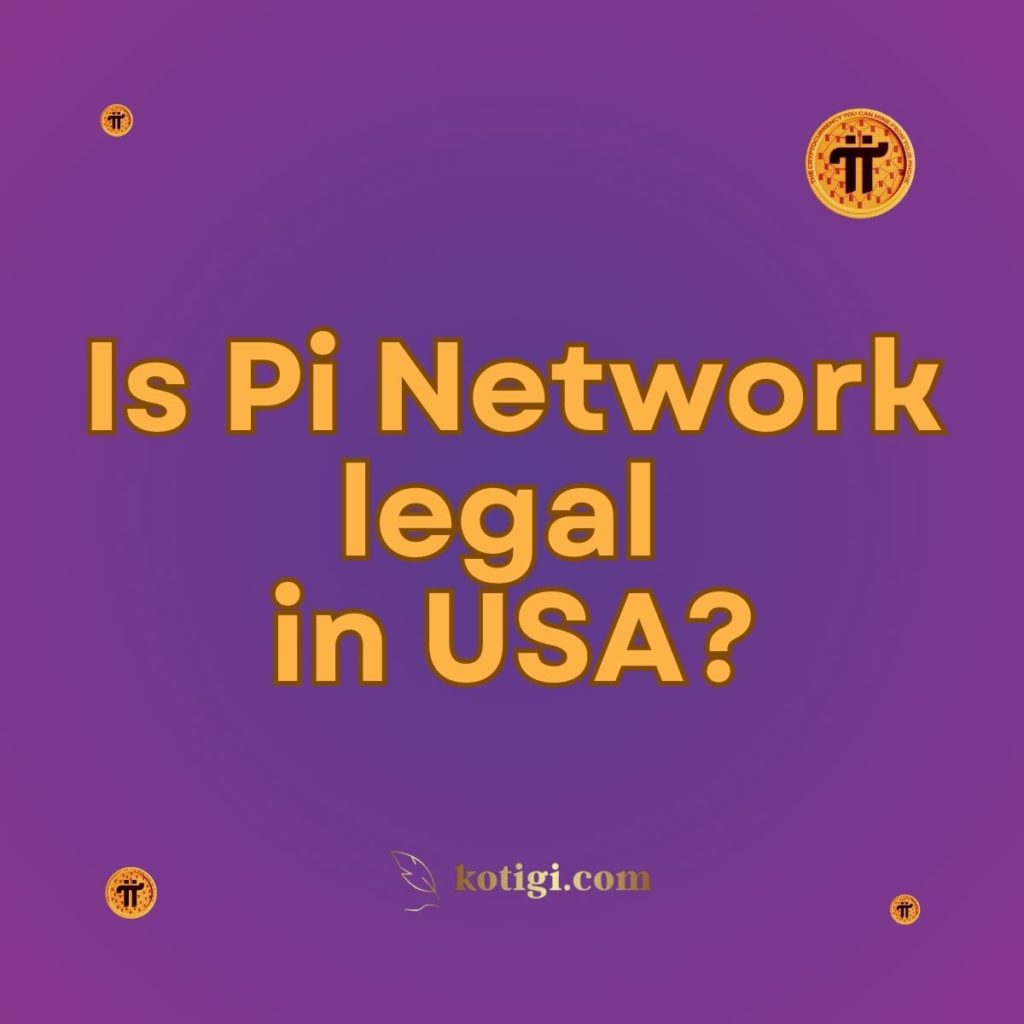
Is Pi Network legal in USA?
The legality of Pi Network in the USA is subject to various factors, including regulatory scrutiny, compliance with financial laws, and the evolving landscape of cryptocurrency regulation. Here’s an overview of the current legal status and considerations for Pi Network in the United States:
1. Regulatory Status
1.1. Cryptocurrency Regulations:
As of now, Pi Network does not have a specific regulatory status in the USA, primarily because it is still in its development phase and has not yet launched its mainnet. In general, cryptocurrencies are legal in the USA, but they are subject to regulatory oversight by agencies such as the Securities and Exchange Commission (SEC), the Commodity Futures Trading Commission (CFTC), and the Financial Crimes Enforcement Network (FinCEN).
1.2. Compliance with Federal Laws:
For Pi Network to operate legally in the USA, it must comply with federal laws and regulations governing cryptocurrencies. This includes adhering to anti-money laundering (AML) and know-your-customer (KYC) requirements, as well as any regulations pertaining to securities if Pi Network’s tokens are deemed to be securities.
2. Securities and Exchange Commission (SEC) Oversight
2.1. Token Classification:
The SEC determines whether a cryptocurrency or token is classified as a security based on the Howey Test, which assesses whether an asset is an investment contract. If Pi Network’s tokens are classified as securities, it would need to comply with SEC regulations, including registration requirements and disclosure obligations.
2.2. Initial Coin Offerings (ICOs):
If Pi Network conducts an Initial Coin Offering (ICO) or token sale in the future, it must ensure that the offering complies with SEC regulations. This includes providing necessary disclosures and adhering to registration requirements or qualifying for exemptions.
3. Commodity Futures Trading Commission (CFTC) Oversight
3.1. Commodity Classification:
The CFTC regulates cryptocurrencies classified as commodities. If Pi Network’s tokens are deemed to be commodities, they would fall under the CFTC’s jurisdiction. Compliance with CFTC regulations involves adhering to trading practices and reporting requirements for commodity transactions.
3.2. Derivatives and Futures:
If Pi Network introduces derivatives or futures contracts involving its tokens, it must comply with CFTC regulations governing these financial instruments. This includes reporting and compliance requirements specific to derivatives trading.
4. Financial Crimes Enforcement Network (FinCEN) Compliance
4.1. Anti-Money Laundering (AML) Requirements:
Pi Network must comply with AML regulations enforced by FinCEN. This involves implementing procedures to prevent money laundering and terrorist financing, including KYC practices for user verification.
4.2. Registration Requirements:
Depending on its business model and operations, Pi Network may need to register with FinCEN as a money services business (MSB) if it conducts activities related to the exchange or transmission of cryptocurrency.
5. State-Level Regulations
5.1. Varying State Laws:
Cryptocurrency regulations can vary significantly from state to state. Pi Network must ensure compliance with state-level regulations in the USA, which may include licensing requirements, consumer protection laws, and specific cryptocurrency regulations.
5.2. State Regulatory Bodies:
In addition to federal oversight, Pi Network may be subject to regulation by state financial regulatory bodies. Each state may have its own set of rules governing cryptocurrency activities.
6. Consumer Protection and Legal Considerations
6.1. Transparency and Disclosure:
Ensuring transparency and providing clear information to users about Pi Network’s operations, tokenomics, and potential risks is crucial for legal compliance and consumer protection.
6.2. Legal Risks and Liabilities:
Pi Network must address potential legal risks and liabilities by seeking legal advice and ensuring compliance with applicable laws. This includes managing legal challenges related to regulatory compliance and user rights.
Conclusion
Pi Network’s legality in the USA depends on its compliance with federal and state regulations governing cryptocurrencies. As Pi Network continues to develop and prepare for its mainnet launch, it will need to navigate regulatory requirements set by the SEC, CFTC, FinCEN, and state financial regulators. Ensuring adherence to these regulations, including AML/KYC requirements and securities laws, is essential for operating legally and maintaining trust with users.




